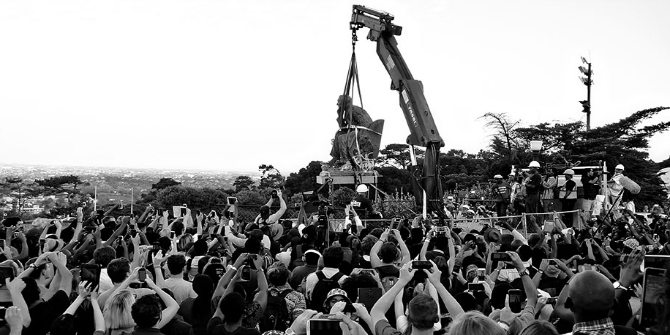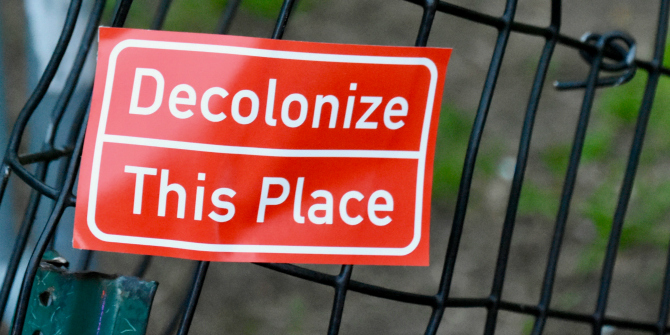Image Credit: ‘African and Caribbean War Memorial, Windrush Square, Brixton London’ by Kelly Foster licensed under CC BY SA 4.0
In this reading list, we recommend fifteen books previously reviewed on the LSE RB blog that critically explore the histories of imperialism, discuss the life and works of people who have contested colonialism and seek to better understand the legacies of empire in the present. If you would like to add to this list, please add your recommendations in the comments below.
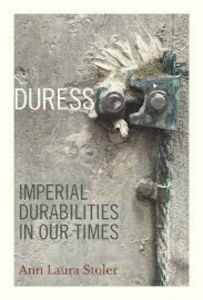 Duress: Imperial Durabilities in our Times. Ann Laura Stoler. Duke University Press. 2016.
Duress: Imperial Durabilities in our Times. Ann Laura Stoler. Duke University Press. 2016.
How do colonial histories remain active forces shaping the conditions and most urgent issues of the present? Ann Laura Stoler utilises ‘duress’ as a category of domination as the prism through which to analysis how imperial traces continue to impact on relations of exploitation in the contemporary moment. Ed Jones praised this book as a refreshing and deeply creative interpretation of modern politics that will offer a laboratory of ideas to readers.
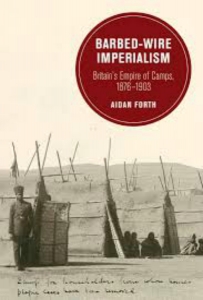 Barbed-Wire Imperialism: Britain’s Empire of Camps, 1876-1903. Aidan Forth. University of California Press. 2017.
Barbed-Wire Imperialism: Britain’s Empire of Camps, 1876-1903. Aidan Forth. University of California Press. 2017.
Aidan Forth presents a history of the concentration camp during the late nineteenth century, showing its development to be rooted less in colonial military conflict than in Victorian ideals concerning the preservation of physical and moral health. Mahon Murphy found this a fascinating account that describes the forces that created and maintained camp networks within the British empire without losing sight of the human suffering of those interned, and also underscores their continued relevance to twenty-first-century liberal empire.
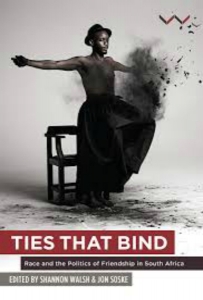 Ties That Bind: Race and the Politics of Friendship in South Africa. Shannon Walsh and Jon Soske (eds). Wits University Press. 2016.
Ties That Bind: Race and the Politics of Friendship in South Africa. Shannon Walsh and Jon Soske (eds). Wits University Press. 2016.
Ties That Bind brings together contributors to investigate the intimacies and complicities that friendship can crystallise in the context of the histories of colonialism and apartheid in South Africa. This is a significant and necessary intervention, found Mantė Vertelytė and Sarita Fae Jarmack, that shows the role that friendship can play in both dismantling and constructing difference.
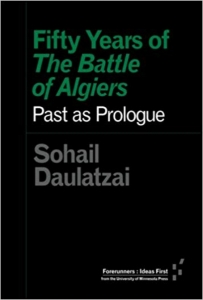 Fifty Years of The Battle of Algiers: Past as Prologue. Sohail Daulatzai. Minnesota Press. 2016.
Fifty Years of The Battle of Algiers: Past as Prologue. Sohail Daulatzai. Minnesota Press. 2016.
Sohail Daulatzai not only offers an ode to The Battle of Algiers, exploring the film’s intellectual lineage and its impact upon postcolonial liberation movements, but also argues that its revolutionary logic has more recently been inverted in service of the ‘war on terror’. Srini Sitaraman found this a powerful, thought-provoking and stimulating book.
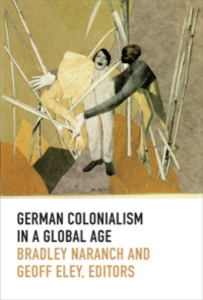 German Colonialism in a Global Age. Bradley Naranch and Geoff Eley (eds). Duke University Press. 2014.
German Colonialism in a Global Age. Bradley Naranch and Geoff Eley (eds). Duke University Press. 2014.
While most studies of European colonialism tend to focus on the British and French empires, German colonialism in the late nineteenth and early twentieth centuries had a significant impact not only on German colonies, but also on German society itself. In German Colonialism in a Global Age, a number of scholars assess German colonialism during the Bismarckian and Wilhelmine eras (1871–1918) and how colonial mentalities and practices shaped later histories during the Nazi era. Reviewed by Mahon Murphy, and translated into German by LSE Language Centre student Amir Ghomeshi.
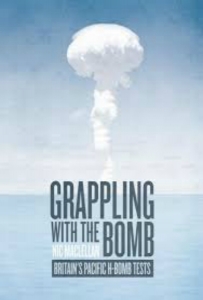 Grappling with the Bomb: Britain’s Pacific H-Bomb Tests. Nic Maclellan. ANU Press. 2017.
Grappling with the Bomb: Britain’s Pacific H-Bomb Tests. Nic Maclellan. ANU Press. 2017.
Grappling with the Bomb gathers together oral history and archival materials to bring forth a more democratic history of the British hydrogen bomb test series Operation Grapple, conducted in the South Pacific between 1957-58. Centralising the experiences and voices of Pacific islanders still affected by the detonations and still fighting for recognition and recompense from the UK government, Tom Vaughan praised this book — available to download here for free — for offering a textured, multi-layered story that gives urgent attention to historical legacies of nuclear harm and injustice.
Race Women Internationalists traces the lives of three black women activist-intellectuals—Una Marson, Paulette Nardal and Eslanda Robeson—whose work relating to race and gender reached across borders in the twentieth century. The book’s account of the lives of these ‘race women internationalists’ succeeds in showing their centrality to historical narratives about anti-colonialism, feminism, socialism and Pan-Africanism, wrote Bethan Johnson.
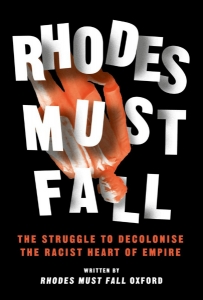 Rhodes Must Fall: The Struggle to Decolonise the Racist Heart of Empire. Rhodes Must Fall Oxford, edited by Roseanne Chantiluke, Brian Kwoba and Athinagamso Nkopo. Zed Books. 2018.
Rhodes Must Fall: The Struggle to Decolonise the Racist Heart of Empire. Rhodes Must Fall Oxford, edited by Roseanne Chantiluke, Brian Kwoba and Athinagamso Nkopo. Zed Books. 2018.
Rhodes Must Fall offers a collection that gives first-hand accounts of the Rhodes Must Fall protests, discusses the response from authorities and explores the practical lessons learned. Grounded in the immense learning of the Fallist movements, this anthology enriches the student movement literature and offer concrete paths forward in the quest to decolonise our institutions, found Priyanka deSouza.
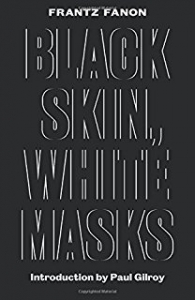 Black Skin, White Masks. Frantz Fanon. Pluto Press. 2017 [1952].
Black Skin, White Masks. Frantz Fanon. Pluto Press. 2017 [1952].
Black Skin, White Masks – first published in 1952 – offers a potent philosophical, clinical, literary and political analysis of the deep and enduring effects of racism and colonialism on the experiences, lives, minds and relationships of black people and people of colour. This book is ‘still a powerhouse’, wrote Leonardo Custódio.
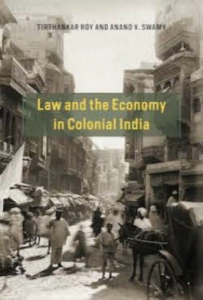 Law and the Economy in Colonial India. Tirthankar Roy and Anand V. Swamy. University of Chicago Press. 2016.
Law and the Economy in Colonial India. Tirthankar Roy and Anand V. Swamy. University of Chicago Press. 2016.
Law and the Economy in Colonial India explores the evolution of law in India under British rule and traces the origins of the legal impediments to the Indian economy today. Reserving high praise for this nuanced book, Peter Robb welcomed the book’s dispassionate, evidence-based analysis.
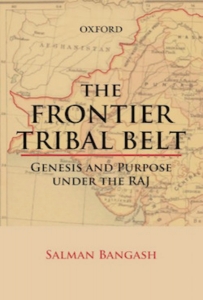 The Frontier Tribal Belt: Genesis and Purpose Under the Raj. Salman Bangash. Oxford University Press, Karachi. 2016.
The Frontier Tribal Belt: Genesis and Purpose Under the Raj. Salman Bangash. Oxford University Press, Karachi. 2016.
The Frontier Tribal Belt explores the history of Pakistan’s Federally Administered Tribal Areas (FATA), focusing on how British policies shaped the tribal belt and mobilised religion for strategic ends. Usama Khilji found the book a fluid and objective guide to understanding the roots of the conflicts that we are seeing unravel in FATA today.
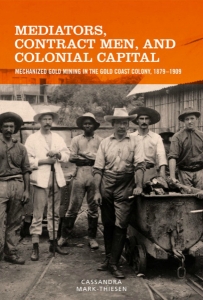 Mediators, Contract Men and Colonial Capital: Mechanized Gold Mining in the Gold Coast Colony, 1879-1909. Cassandra Mark-Thiesen. University of Rochester Press. 2018.
Mediators, Contract Men and Colonial Capital: Mechanized Gold Mining in the Gold Coast Colony, 1879-1909. Cassandra Mark-Thiesen. University of Rochester Press. 2018.
Mediators, Contract Men and Colonial Capital illuminates the dynamic interaction between capital, labour and industry during the initial phase of colonialism in the Gold Coast (1870s-1900s). Henry Brefo praised the book for digging up a rich historical archive that enriches our understanding of labour relations in this period.
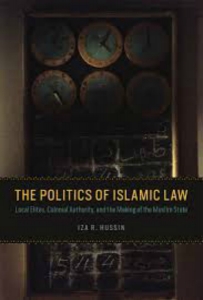 The Politics of Islamic Law: Local Elites, Colonial Authority and the Making of the Muslim State. Iza R. Hussin. University of Chicago Press. 2016.
The Politics of Islamic Law: Local Elites, Colonial Authority and the Making of the Muslim State. Iza R. Hussin. University of Chicago Press. 2016.
In The Politics of Islamic Law, Iza R. Hussin traces a riveting history of Islamic law as it encounters, and is transformed by, British colonialism in Malaya, Egypt and India. Vanja Hamzić found this a work of unique critical sensibilities, setting the scene for future interdisciplinary research of colonial and postcolonial Islamic law as fruitful analytical categories.
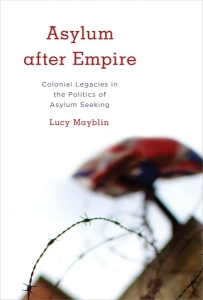 Asylum after Empire: Colonial Legacies in the Politics of Asylum Seeking. Lucy Mayblin. Rowman and Littlefield. 2017.
Asylum after Empire: Colonial Legacies in the Politics of Asylum Seeking. Lucy Mayblin. Rowman and Littlefield. 2017.
Asylum After Empire considers the contemporary hostility of the British state towards asylum seekers in the context of colonial histories. Chris Moreh found this a compelling study that will be an invaluable addition to activist-scholarship on forced migration.
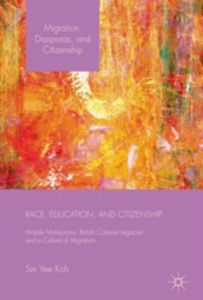 Race, Education and Citizenship: Mobile Malaysians, British Colonial Legacies and a Culture of Migration. Sin Yee Koh. Palgrave Macmillan. 2017.
Race, Education and Citizenship: Mobile Malaysians, British Colonial Legacies and a Culture of Migration. Sin Yee Koh. Palgrave Macmillan. 2017.
Race, Education and Citizenship offers a study of the migratory trajectories of tertiary-educated mobile Malaysian migrants and explores how the legacies of colonialism continue to impact upon the meanings of race, education and citizenship in this context. Fawzia Haeri Mazanderani strongly recommended this book to scholars interested in conceptualising migration and citizenship practices through a postcolonial lens.
Note: The reviews in this reading list gives the views of their authors, and not the position of the LSE Review of Books blog, or of the London School of Economics and Political Science.


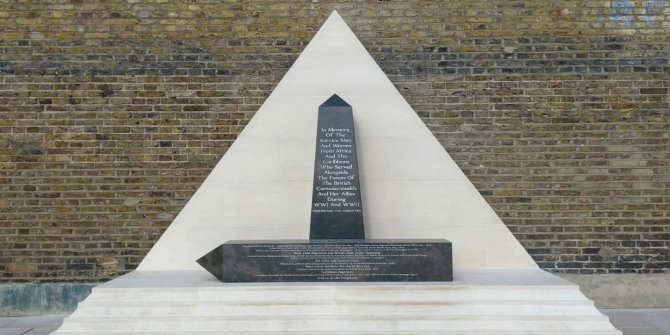
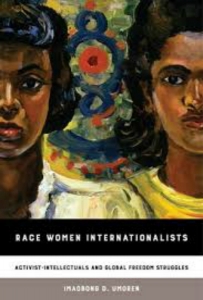 Race Women Internationalists: Activist-Intellectuals and Global Freedom Struggles. Imaobong D. Umoren. University of California Press. 2018.
Race Women Internationalists: Activist-Intellectuals and Global Freedom Struggles. Imaobong D. Umoren. University of California Press. 2018.


